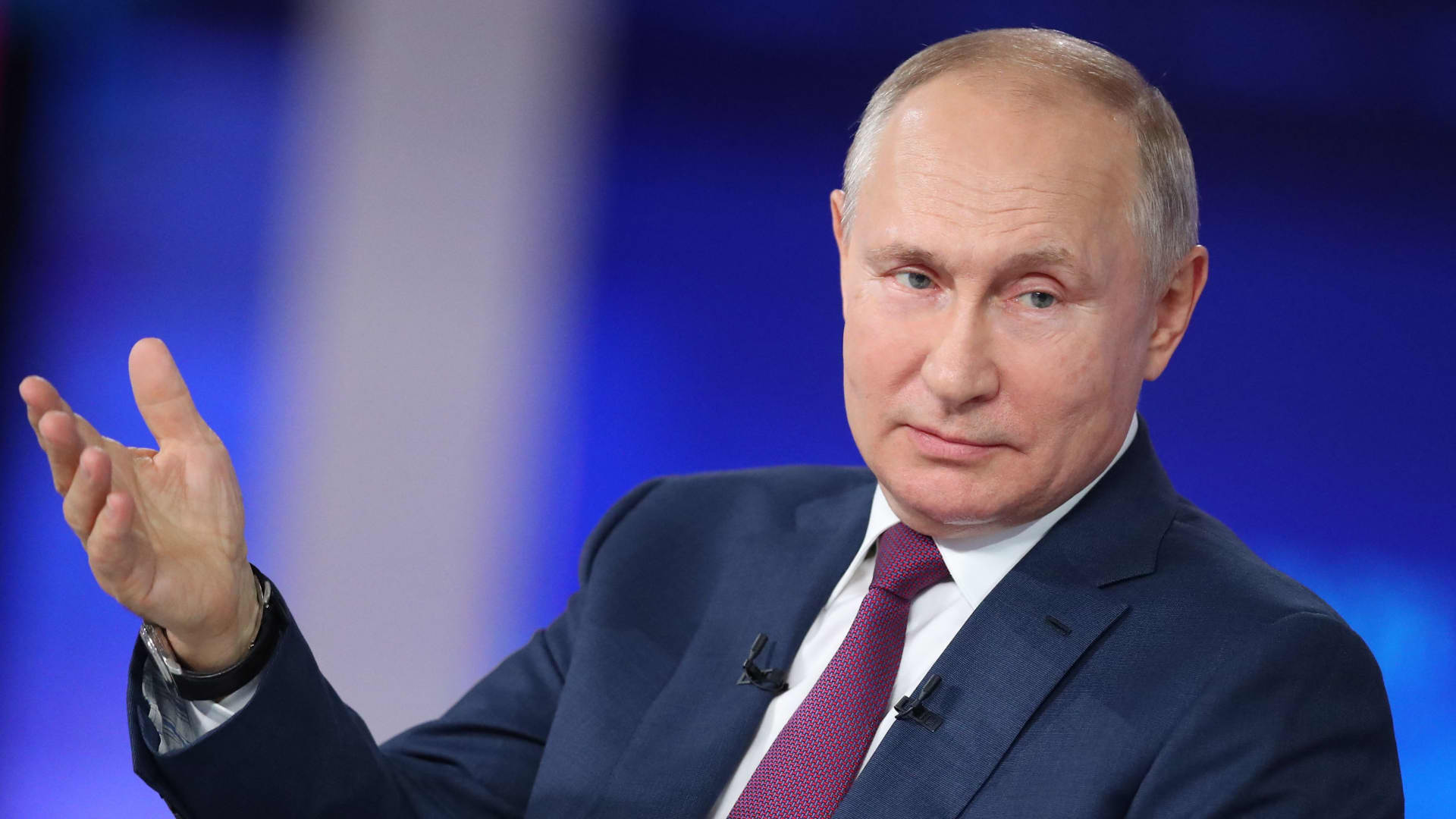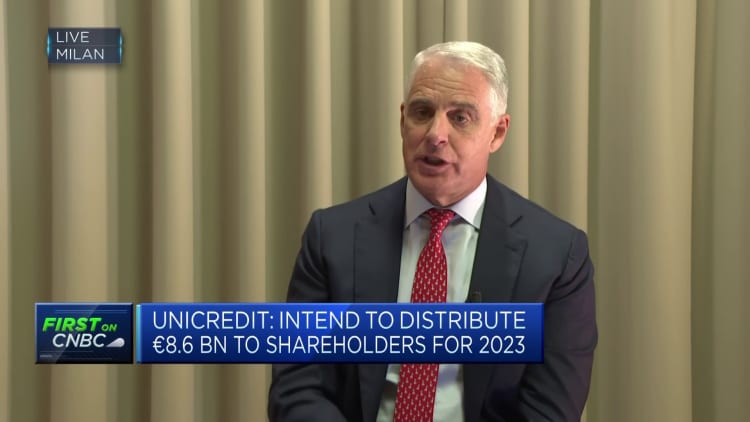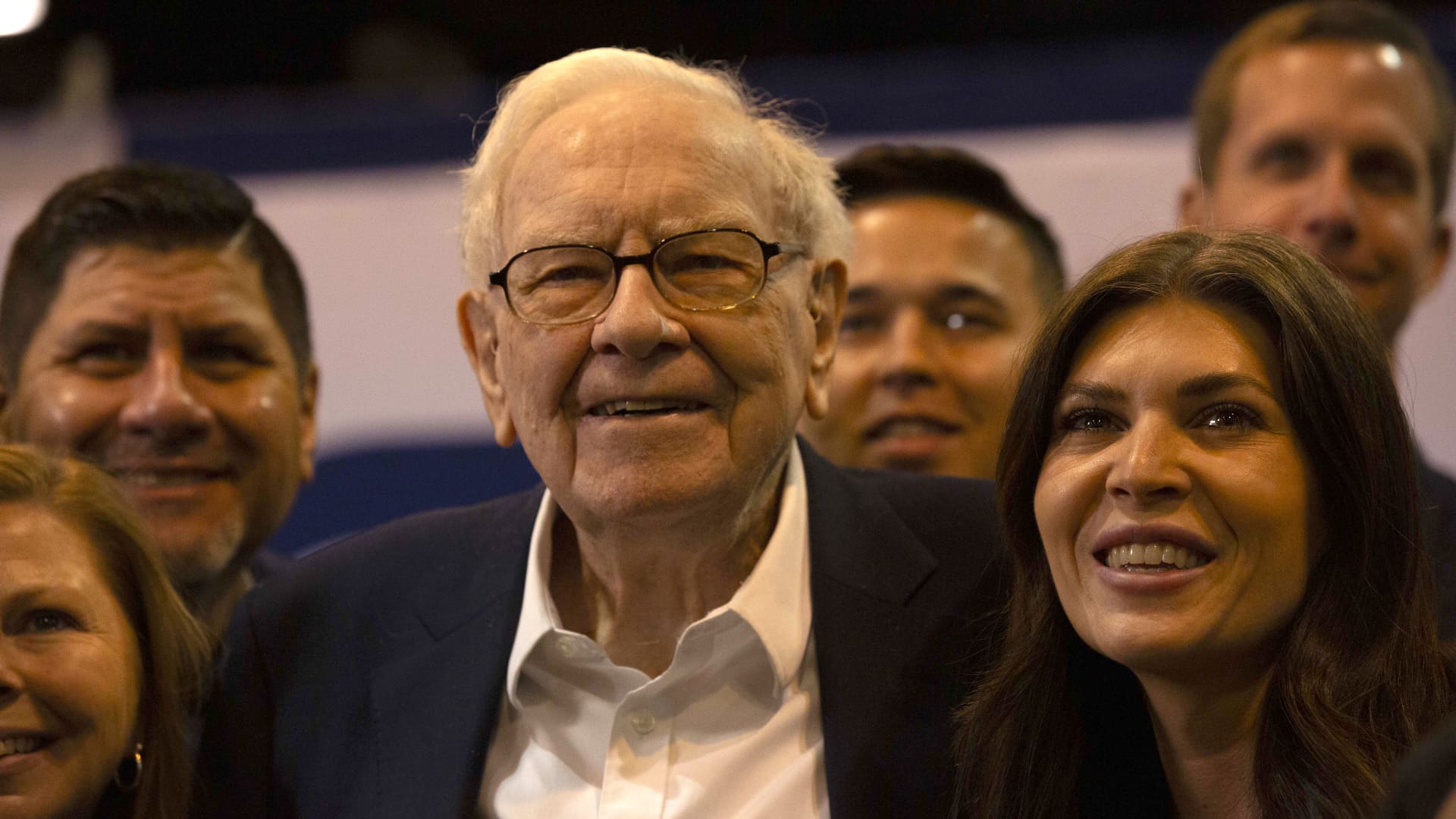Ukraine war live updates: Kremlin declines to comment on Tucker Carlson speculation; Moscow dismisses threat from war critic


Plot thickens over Tucker Carlson’s supposed trip to Moscow
Speculation over why American journalist Tucker Carlson is now in Moscow (or at least believed to be in Moscow) have been fueled further after news outlet Izvestia published a video on Telegram which appeared to show a Russian man chatting to the journalist in a hotel in Moscow.
Asked about the purpose of his trip to Russia, Carlson told the man: “I wanted to look at it. I read so much about it, I wanted to talk to people, see how everything works. And everything is very good here.” Carlson said he thought Moscow was a “beautiful” city. The video comments were translated by TASS news agency.
There has been speculation that Tucker Carlson is in Russia ahead of a possible interview with Russian President Vladimir Putin, who rarely gives interviews to foreign journalists.
Russian President Vladimir Putin chairs a meeting with members of the Security Council via video link at the Kremlin in Moscow, Russia, December 22, 2023.
Mikhail Klimentyev | Sputnik | Reuters
Earlier, the Kremlin declined to say whether or not Putin would grant an interview to the former Fox News host Carlson — or to confirm whether he was in Moscow.
“We can hardly be expected to provide information on the movement of foreign journalists,” Kremlin spokesman Dmitry Peskov said when asked about speculation that Carlson was in Russia to interview Putin.
— Holly Ellyatt
Kremlin gives nothing away about why Tucker Carlson might be in Russia
The Kremlin on Monday declined to say whether or not Russian President Vladimir Putin would grant an interview to U.S. journalist Tucker Carlson — or whether he was in Moscow.
“We can hardly be expected to provide information on the movement of foreign journalists,” Kremlin spokesman Dmitry Peskov said when asked about speculation that Carlson was in Russia to interview Putin.
“Many foreign journalists come to Russia every day, many continue to work here, and we welcome this,” Peskov said. “We have nothing to announce in terms of the president’s interviews to foreign media.”
Former Fox News commentator Tucker Carlson speaks during the Turning Point Action Conference in West Palm Beach, Florida, July 15, 2023.
Marco Bello | Reuters
Carlson is a former Fox News host who launched a new subscription-based streaming video service in December to capitalize on his popularity among conservative voters. An interview he posted on X with Donald Trump last August has drawn more than 267 million views, according to the social media platform.
The Mash Telegram channel on Saturday published a picture of Carlson and said he had arrived in Moscow.
— Reuters
Israel-Russia relations worsen as ambassador summoned over ‘unacceptable’ comments
Israel’s new Ambassador to Russia Simona Halperin was summoned by Russia’s Foreign Ministry following what Moscow described as “unacceptable statements,” news agency Tass reported Monday.
“In connection with unacceptable public statements by the Israeli ambassador, distorting Russian foreign policy approaches and historical realities, Halperin will be summoned to the Foreign Ministry,” the ministry reportedly told Tass.
The summons comes after an interview, in the Kommersant newspaper, in which Halperin appeared to criticize what she saw as Russia’s foreign minister’s downplaying of the Holocaust — saying Russia still does not officially mark International Holocaust Remembrance Day — as well as restate Israel’s opposition to the invasion of Ukraine and Moscow’s Middle East policy.
Mikhail Svetlov | Getty Images
Russia and Israel have traditionally enjoyed cordial relations. But they soured after Russia’s invasion of Ukraine, which was condemned by Israel, and more recently following Hamas’ Oct. 7 attack on Israel. Hamas is backed by Iran, Russia’s close ally, putting Moscow in a tricky position in the Middle East. It has in recent months become openly critical of Israel’s military operation in Gaza, however.
Responding to the interview, Russia’s Foreign Ministry said the comments were “an extremely unsuccessful start to a diplomatic mission, which should be aimed at developing bilateral relations in the interests of the peoples of the two countries.”
“It is particularly indignant that the Israeli ambassador speaks disrespectfully about the efforts that Russia is making in its contacts aimed at helping resolve the fate of the [Israeli] hostages,” the ministry said, Tass reported.
“The theses that the Holocaust is the extermination of only the Jewish people contradicts the resolution of the UN General Assembly. And reflections on the need for changes, as Halperin said, in the ‘state calendar’ of Russia, border on interference in internal affairs,” the ministry said.
— Holly Ellyatt
Russia unlikely to meet 2024 revenue target, UK says
It is unlikely that Russia’s planned revenue target for 2024 will be met, according to Britain’s Ministry of Defense, which said Moscow will likely have to raise taxes and reduce contributions to its sovereign wealth fund to fund its planned expenditure.
Noting that the Russian government has “ambitious” plans to increase expenditure by 26% in 2024, the defense ministry said this was “reliant on optimistic expectations of revenues rising by 22%, with oil and gas revenues expected to increase by almost 25%.”
“It is likely the government will need to consider other policy measures to fund its planned expenditure,” the ministry said on X, formerly known as Twitter, on Monday.
The sun sets beyond an oil pumping unit, also known as a “nodding donkey” or pumping jack, at a drilling site operated by Tatneft OAO near Almetyevsk, Russia, on Friday, July 31, 2015.
Bloomberg | Bloomberg | Getty Images
The ministry suggested it was likely that the government will need to reduce its contributions to the National Wealth Fund, its sovereign wealth fund, and increase domestic taxes and debt to fund its planned expenditure.
“These policies will almost certainly have adverse effects on the economy in the medium to long term by maintaining inflationary pressures or constraining future economic growth. The National Wealth Fund is ostensibly for the long-term economic welfare of the Russian people but is increasingly being used to fund its invasion of Ukraine, with the value of its assets falling 10% in 2023,” the ministry noted.
— Holly Ellyatt
Russia’s war in Ukraine has revived EU enlargement plans
People hold a banner and Ukrainian flags during a rally to mark the one-year anniversary of Russia’s invasion of Ukraine on February 24, 2023 in Belgrade, Serbia. As part of the Western Balkans block waiting for EU-membership, Serbia is caught in a geostrategic rivalry between its Western allies and Russia.
Vladimir Zivojinovic | Getty Images News | Getty Images
Russia’s full-scale invasion of Ukraine brought fresh political momentum to the European Union and its plans for enlargement in the Western Balkans. But whether the neighboring region is ready — and willing — to finally make the steps needed to join the union remains unclear.
“I see the European Union more ready for the Balkans than the Balkans for the European Union,” Miroslav Lajčák, EU Special Representative for the Belgrade-Pristina Dialogue and Western Balkans, told CNBC last month.
The Western Balkans, comprised of Albania, Bosnia and Herzegovina, North Macedonia, Montenegro, Kosovo and Serbia, represent a notable gap in the map of EU membership in southeastern Europe.
Though each has applied for — and been granted — candidate or potential candidate member status over the past two decades following the fall of the socialist federation of Yugoslavia in 1992, progress on accession has been generally slow.
But all that changed with the outbreak of war on Europe’s doorstep in February 2022. Within days of Russia’s invasion, Ukraine, neighboring Moldova and, soon after, nearby Georgia applied for EU candidate status — which they were granted in quick succession.
“Ukraine and Moldova and Georgia brought a fresh energy and commitment – something that was almost lost in the Balkans,” Lajčák said. “Now, it’s very clear that the European Union is serious.”
— Karen Gilchrist
Ukrainian president visits front-line village of Robotyne
Ukrainian President Volodymyr Zelensky visited troops at the front-line village of Robotyne in southern Ukraine over the weekend.
Ukrainian forces recaptured the village in the Zaporizhzhia region last August, describing the liberation as a significant breakthrough during their summer counteroffensive. Overall progress was slow, however, and only a handful of villages were recaptured from Russian forces.
Empty tank shells are seen on a snow-covered field during winter near Robotyne, Zaporizhzhia, Ukraine on January 22, 2024.
Anadolu | Anadolu | Getty Images
Describing Robotyne as “one of the toughest parts of the front” Zelenskyy said he met soldiers of the 65th Mechanized Brigade and handed out awards to those who “distinguished themselves in battles these weeks.”
Zelenskyy then held a security meeting in Zaporizhzhia, talking to officials about the region, its capital and heard reports from military commanders, both on the region and on another fighting hot spot, Avdiivka in Donetsk. There has been speculation that Zelenskyy could replace the head of his armed forces in a shake-up of the military, and potentially other ministries.
On Sunday, Zelenskyy appointed Ivan Fedorov as the new head of Zaporizhzhia Regional State Administration. Fedorov, the former mayor of Russian-occupied Melitopol, said after the appointment that his “goal remains unchanged: to join forces to bring Ukraine’s victory closer. I did this as mayor of the city. Now I’ll continue at the regional level.”
— Holly Ellyatt
Kremlin downplays level of support for anti-war election candidate hopeful Boris Nadezhdin
A challenger to Russian President Vladimir Putin’s long reign in office has emerged from an unlikely place — within Russia’s political establishment — in the form of Boris Nadezhdin.
Standing on a platform for peace with Ukraine, friendly and cooperative global relations and fair elections, as well as a fairer civil society and smaller state, Nadezhdin submitted his bid to run for the presidency last week. Russia’s presidential election will be held March 15-17.
Boris Nadezhdin, Civic Initiative party’s candidate for Russia’s 2024 presidential election, bringing 105,000 signatures to the polling station in Moscow, Russia on January 31, 2024.
Boris Nadezhdin Press Service/Handout/Anadolu via Getty Images
The Kremlin sought to dismiss Nadezhdin’s potential to upset an election whose win for Putin is seen as a done deal. Kremlin Press Secretary Dmitry Peskov told CNBC that “we are not inclined to exaggerate the level of support for Mr. Nadezhdin.”
Political analysts say it’s likely that Russia’s Central Election Commission will find fault this week with Nadezhdin’s bid to get his name on the ballot paper.
Nonetheless, the fact that Nadezhdin is even attempting to stand for election on an anti-war platform — and has garnered a certain level of public support — shows there is public appetite for his views, and that’s likely to make the Kremlin nervous after it has staked its political legacy and future on a victory in Ukraine.
Read more here: Russian war critic poses an awkward challenge for Putin and the Kremlin as the election nears
— Holly Ellyatt
Senate releases $118 billion bipartisan aid proposal for Israel, Ukraine, border security
Senators on Sunday released the details of a $118.2 billion bipartisan aid proposal for Ukraine, Israel and the southern U.S. border, after months of painstaking, closed-door negotiations.
The long-awaited bill requests $60.1 billion for Ukraine aid, $14.1 billion for Israel and $20.2 billion to improve security at the U.S. border. It also includes smaller pockets of funding for humanitarian assistance in war-torn regions, and defense operations in the Red Sea and Taiwan.
Ukrainian servicemen listen a high ranking officer after military exercises by assault units in Zhytomyr region on January 30, 2024, amid Russian invasion in Ukraine.
Sergei Supinsky | Afp | Getty Images
President Joe Biden initially proposed a more than $105 billion aid package in October. The Senate’s new deal roughly matches the funding proportions Biden had requested for Ukraine, Israel and Taiwan.
The central difference in the new proposal is over $13 billion more in border security funding, which was a major point of contention in the months-long Senate talks.
Republicans have criticized the Biden administration for its handling of the border, which has seen record numbers of migrant crossings in recent months. Democrats have countered that the president needs further executive authority to institute more aggressive border security.
The president said Sunday that he supports the Senate’s bipartisan proposal, including the term that gives him “new emergency authority to shut down the border when it becomes overwhelmed.”
“I urge Congress to come together and swiftly pass this bipartisan agreement. Get it to my desk so I can sign it into law immediately,” Biden said. Senate Majority Leader Chuck Schumer, D-N.Y., said a vote is scheduled for the bill on Wednesday.
Read more here: Senate releases $118 billion bipartisan aid proposal for Israel, Ukraine, border security
— Rebecca Picciotto
Unicredit CEO says business continues to be scaled down in Russia
Andrea Orcel, CEO of UniCredit, discusses the Italian lender’s business strategy in Russia.









